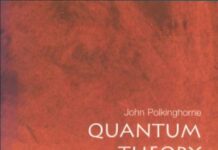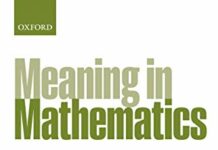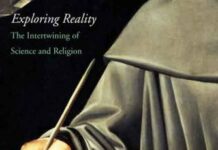
Ebook Info
- Published: 2011
- Number of pages: 160 pages
- Format: PDF
- File Size: 0.00 MB
- Authors: John Polkinghorne
Description
John Polkinghorne, an international figure known both for his contributions to the field of theoretical elementary particle physics and for his work as a theologian, has over the years filled a bookshelf with writings devoted to specific topics in science and religion. In this new book, he undertakes for the first time a survey of all the major issues at the intersection of science and religion, concentrating on what he considers the essential insights for each. Clearly and without assuming prior knowledge, he addresses causality, cosmology, evolution, consciousness, natural theology, divine providence, revelation, and scripture. Each chapter also provides references to his other books in which more detailed treatments of specific issues can be found.For those who are new to what Polkinghorne calls “one of the most significant interdisciplinary interactions of our time,” this volume serves as an excellent introduction. For readers already familiar with John Polkinghorne’s books, this latest is a welcome reminder of the breadth of his thought and the subtlety of his approach in the quest for truthful understanding.
User’s Reviews
Reviews from Amazon users which were colected at the time this book was published on the website:
⭐Polkinghorne surmounts much of the strident rhetoric from the much-ballyhooed “war” between science and faith, and puts the two uncompromisingly under the same kind of microscope, holding out not for a fragmented, but a unitary truth that encompasses all kinds of knowing. One may not at all points agree with him, but his exposition will leave the reader in no doubt about what he’s driving at and why. In an area of discourse more noted for the exercise of spleen than of mind, it’s very refreshing.
⭐This book was a gift because we thought so much of it after we read it. The author is, I think, one of best minds in world and a most qualified person to discuss the relationships between science and faith. And the book is highly readable.
⭐Polkinghorne is always well worth reading (marking, studying, and inwardly digesting!) In this volume he offers accessible explanations and insights into current cosmological research and theories and takes up some key theological questions (e.g., divine/human synergism, intercessory prayer, eschatology, the relationship of Christianity and other world religions) in light of contemporary physics.
⭐Not light reading. I sometimes had to read a page over twice to understand. That being said this is an eloquent exposition of the Christian view
⭐The truth is out there…
⭐A concise reporting on where science and theology are at this time in history. He deftly blends the two disciplines into a Christianity one can follow without insulting ones intelligence.
⭐A unique discussion from a man of science and a deep thinking Christian philosopher.John Polkinghorne is an engaginging humble intellect.
⭐By exposing the horizons of both science and religion, Polkinghorne opens the vocabulary of science to the concept of faith-as-commitment to an unknown, and he challenges religion to ground itself in the scientific quest. He is a true gu-ru: dispeller of darkness (gu) and bringer of light (ru).
⭐This is a short book at 134 pages which means some of the descriptions are quite economical in places. Readers with a reasonable grounding in science, particularly quantum mechanics, will find the book more accessible than others. You don’t need to know Schroedinger’s equation, but it might help to know the back-ground to elements of quantum physics such as superposition and entanglement. Similarly with the chaotic behaviour of classical non-linear systems.Polkinghorne subscribes to the finely tuned universe view that the constants of the universe are so finely tuned to result in self-conscious life (us) that those constants must have been set (designed even) by a creator. To differentiate this from the Deist non-interventionist God, Polkinghorne focuses on the inherent uncertainties in the universe (quantum mechanics, choatic systems, genetic mutations etc.). These require an immanent God to ‘direct’ (my word) all the uncertainities to result in the teleological emergence of mankind. Essentially, without God to hold the fabric of the universe together it would fly-off into chaos – classic ‘order from chaos’ stuff recast using modern science.I will try and give my own interpretation of Polkinghorne: if God is operating through the uncertainty of the quantum world, then the multiplicity inherent in quantum superposition is illusory. The health of Schroedinger’s cat is divinely determined ‘a priori’. What is uncertain is our ability to know whether the cat is alive or dead. I can see the attraction to theists: only God can determine outcomes, the science of quantum mechanics means humans can never overcome the inherent uncertainties in the world. This presents the intriguing possibility of designing experiments at the quantum level to demonstate divine bias in the outcomes.Overall, this a fairly dry book. It is much more logical and deductive in it’s approach compared to, say, Denis Alexander’s ‘Creation or Evolution’. Polkinghorne does not convey the same sense of awe that Alexander does both for the latter’s scientific and theistic pursuits. Polkinghorne certainly yields less scientific ground to theism than Alexander. Polkinghone has an interesting section on prayer – why should we be so arrogant as to pray to a God that has already set the course he deems best. Polkinghorne’s answer is that prayer is a purely mundane activity that helps us organise our thoughts and come to terms with things around us. On miracles, he veers to miracles being so because of timing rather than violations of the natural order. If you have a reasonable understanding of science then I would thoroughly recommend this book. It is the best attempt I have read, so far, to triy to reconcile science and theism. It did not shake my atheist convictions, but there was a lot of food for thought in this book.
⭐If you are interested in the different ways in which religion and science search for and perceive truth; then this is for you. It’s an excellent summary of the different approaches to finding (absolute) truth – in so far as man can determine it. There need be no conflict between the two approaches as long as both are understood. Polkinghorne is qualified in both areas and is a clear writer. Recommended for the serious thinker.
⭐This is an excellent book, presenting its arguments in a clear and profound fashion.It should be read by anyone with a Christian ministry in this scientific age. Prof Polkinghorn brings together in a concise form discussions and argumennts from his previous books almost as a summary of his life’s teaching on this topic.He discusses both separately and jointly the methodologies of science and theology.In an age where many see these in conflict he shows that they have a profound level of mutual support, with each throwing light on the other.
⭐Very helpful ideas
⭐Not the most accessible read for an ordinary non-scientist/non-theologian/non-philosopher like me. There are few who could handle such complex questions and have the courage and ability to articulate his answers. He wins my admiration.
Keywords
Free Download Science and Religion in Quest of Truth in PDF format
Science and Religion in Quest of Truth PDF Free Download
Download Science and Religion in Quest of Truth 2011 PDF Free
Science and Religion in Quest of Truth 2011 PDF Free Download
Download Science and Religion in Quest of Truth PDF
Free Download Ebook Science and Religion in Quest of Truth




